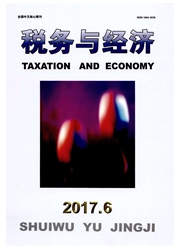

 中文摘要:
中文摘要:
以2007—2009年我国深沪A股上市公司为研究样本,引入中介变量的研究方法,检验并揭示内部控制对股权结构影响盈余质量的中介传导作用。结果发现:第一大股东持股比例越高,内部控制水平越低,盈余质量水平越低;股权制衡能力越高,内部控制水平越高,更利于提高企业的盈余质量;机构投资者持股比例越高,企业的内部控制水平越高,但盈余质量越低。总体看,内部控制对股权结构与盈余质量具有传导效应,但是显著性存在差异,对股权结构中的第一大股东持股比例、机构投资者持股比例与盈余质量的中介传导效应要显著高于对股权制衡能力与盈余质量的中介传导效应。
 英文摘要:
英文摘要:
The sample of this dissertation is A-share listed companies of China' s Shenzhen and Shanghai Stock Exchange from 2007 to 2009. This dissertation has adopted intermediary variables to test and reveal the intermediary effect of internal control on the relation between ownership structure and earnings quality. The empirical resuits show that: firstly, the higher shareholding of the largest shareholder, the lower the level of internal control and the earnings quality will be; the higher ownership balance power, the better internal control level will be, and it is more conducive to improve the earnings quality; the higher institutional investors shareholding, the better level of internal control, but the lower earnings quality will be ; secondly, the internal control has the intermediary effect on the relation between influences of ownership structure on earnings quality, but the significance is different, the intermediary effect on the shareholding of the largest shareholder and institutional investor and on the earnings quality is more obvious than it is on the ownership balance power and the earnings quality.
 同期刊论文项目
同期刊论文项目
 同项目期刊论文
同项目期刊论文
 期刊信息
期刊信息
